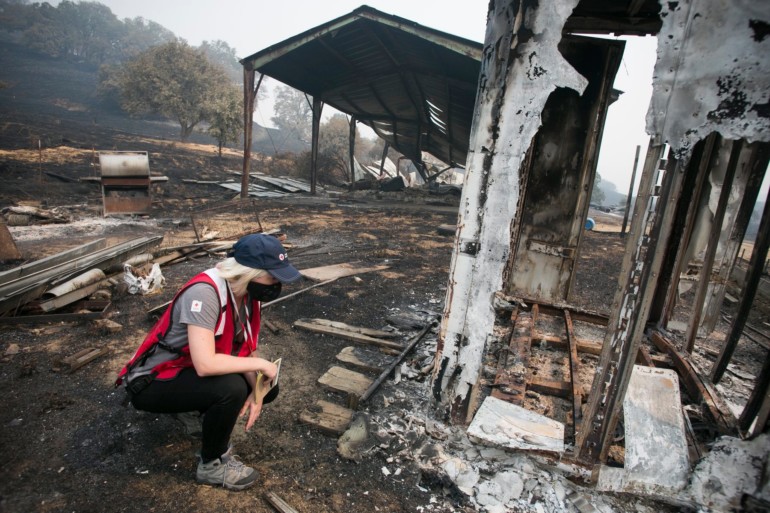Across the U.S., the Red Cross is dealing with a disaster season of massive proportions. The American Red Cross is deploying volunteers to assist.
To compound the challenges of 2020, this disaster season has proven that Mother Nature doesn’t take a break, even during a global pandemic.
In July, Hurricane Hanna made landfall in Texas—the first hurricane to hit Texas since Hurricane Harvey in 2017. Over 194,000 in the Rio Grande Valley lost power when Hannah, dumped several inches of rain and seven feet of storm surge causing widespread flash flooding and brought 110 mph winds downing trees and ripping roofs from homes.
Fast forward to the beginning of August, when Hurricane Isaias made landfall in North Carolina. Isaias moved quickly, lashing Virginia, Maryland, Pennsylvania, New Jersey, New York and Connecticut with tropical storm force wind, rains and 8 significant tornadoes. Isaias proved to be the costliest tropical cyclone to affect the Northeastern United States since Hurricane Sandy in 2012, according to Brad Kieserman, Vice President of Operations and Logistics at the American Red Cross.
Eleven days later, the 2020 Midwest Derecho — essentially an inland hurricane, swept across the Midwest from South Dakota to Ohio, traveling 770 miles in 14 hours during which it caused widespread, catastrophic damage to residential, commercial, industrial, and agricultural property, hitting Iowa especially hard.
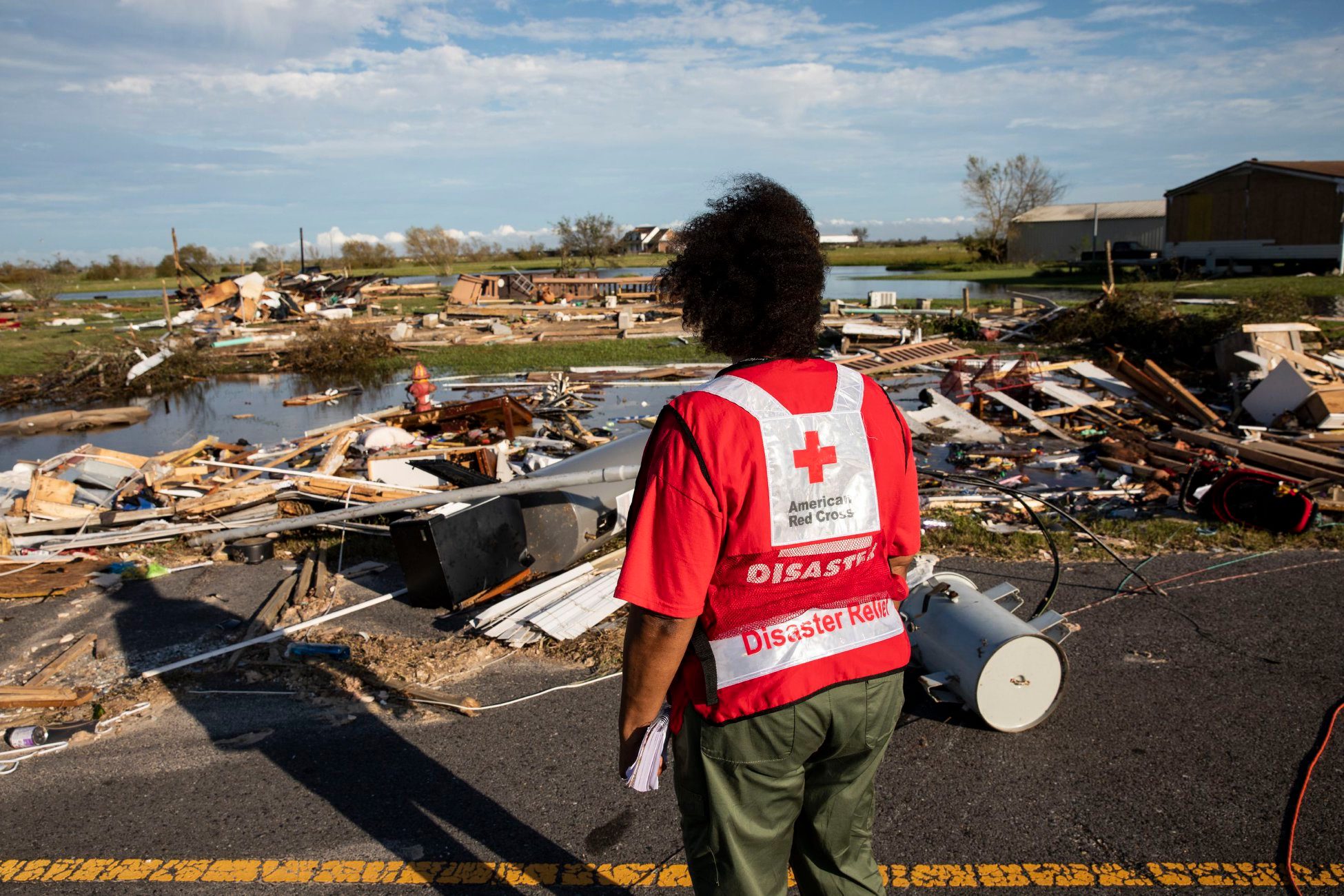
August 27th brought Hurricane Laura, a deadly and devastating Category 4 hurricane that tore mercilessly through Southwest Louisiana and East Texas damaging over 700,000 households, as it became the strongest hurricane on record to make landfall in the State of Louisiana. Damage from Laura left over one million people without power with some areas causing complete destruction of their power grids, and Laura made 80 water systems inoperable leaving about 200,000 people without drinking water.
Tens of thousands of people impacted by Laura are still without power or water and need assistance now. In Louisiana alone, more than 100,000 still don’t have power, and it may take weeks before it’s restored. At least 6,400 homes are either destroyed or have major damage across Louisiana and Texas.
Simultaneously, dozens of explosive wildfires are burning in California, Oregon and Washington. In Oregon, the governor is predicting that the fires could result in the greatest loss of human life and property in the state’s history. In Washington, fires have scorched as many as 330,000 acres in just 24 hours. In California, fires have now burned 2.5 million acres.
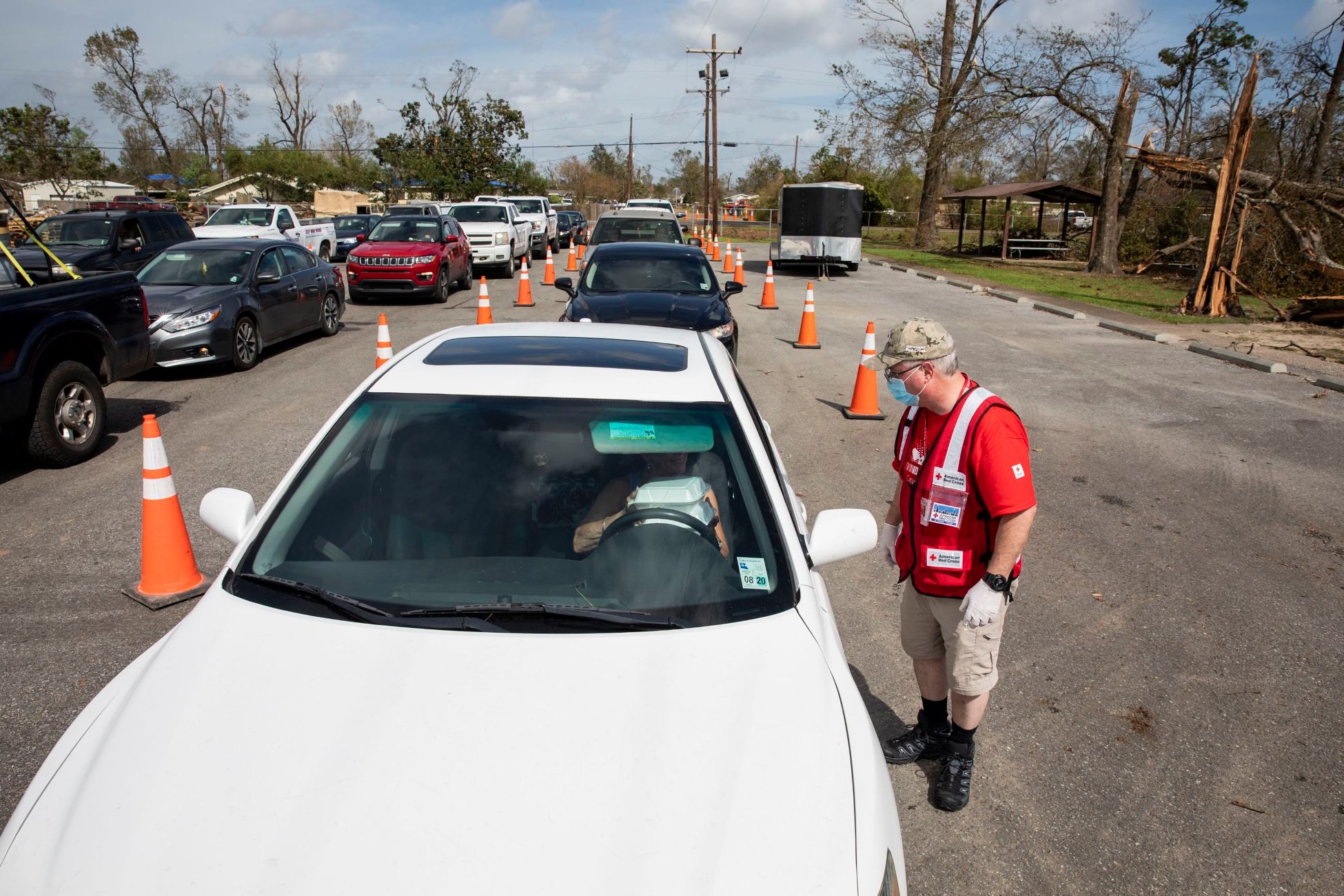
More than 1,700 trained Red Cross disaster workers from around the country are supporting relief efforts on the ground, in Louisiana and Texas, or on the west coast. This includes more than 45 dedicated volunteers from the Illinois Region.
Brian McDaniel is the Executive Director of the Illinois River Valley Chapter. He deployed to Louisiana to assist with feeding efforts.
“Hurricane Laura was one of the worst storms ever to hit Louisiana, and that’s saying a lot when you consider how many times hurricanes roll through this part of the Gulf,” Brian says. “The people are amazingly giving and humble. They worry more about their neighbor than they do themselves. Early on, we learned to remind everyone (impacted) that by taking our Red Cross meals, they were not taking from someone else. …, this level of humility was inspirational.”
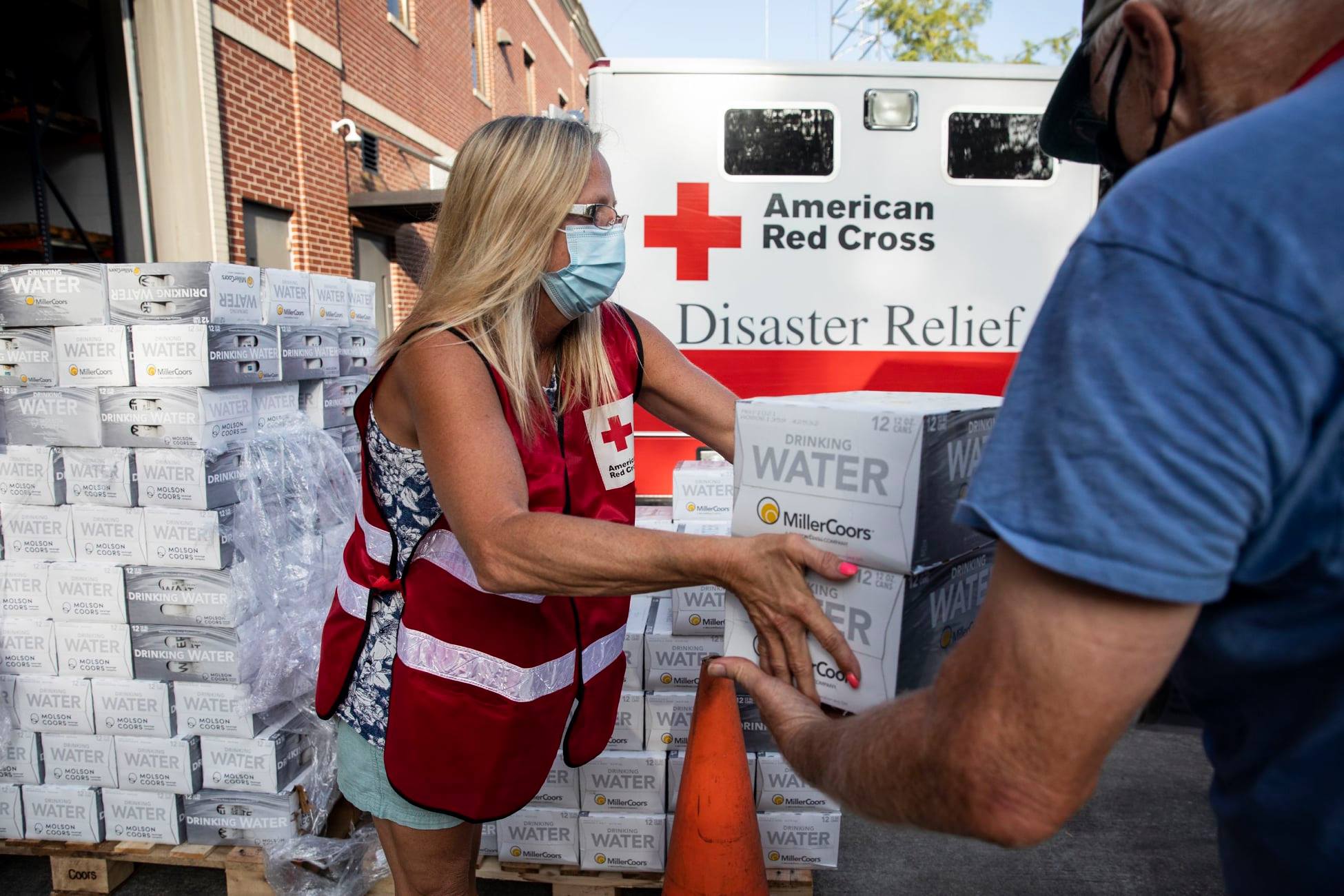
Andrea Toliver is a volunteer from Central Illinois and deployed to Louisiana to assist with the efforts as well.
“I have never seen anything so bad before,” Toliver says. “I just can’t believe how widespread this devastation is. Normally, the damage is contained to one area, but this is huge — nothing but destroyed homes.”
Dianna Patten is another Illinois volunteer in Louisiana. She drives a Red Cross ERV (emergency response vehicle) to devastated areas, serving meals, snacks, water and supplies to residents. She has worked 15 national disasters for the Red Cross.
“The little bit of discomfort that I feel for two to three weeks (during deployment) doesn’t compare to what these people are going through,” Patten says.
Out West, people impacted by the wildfires have now been out of their homes since mid-August and for some, the fires have taken everything.
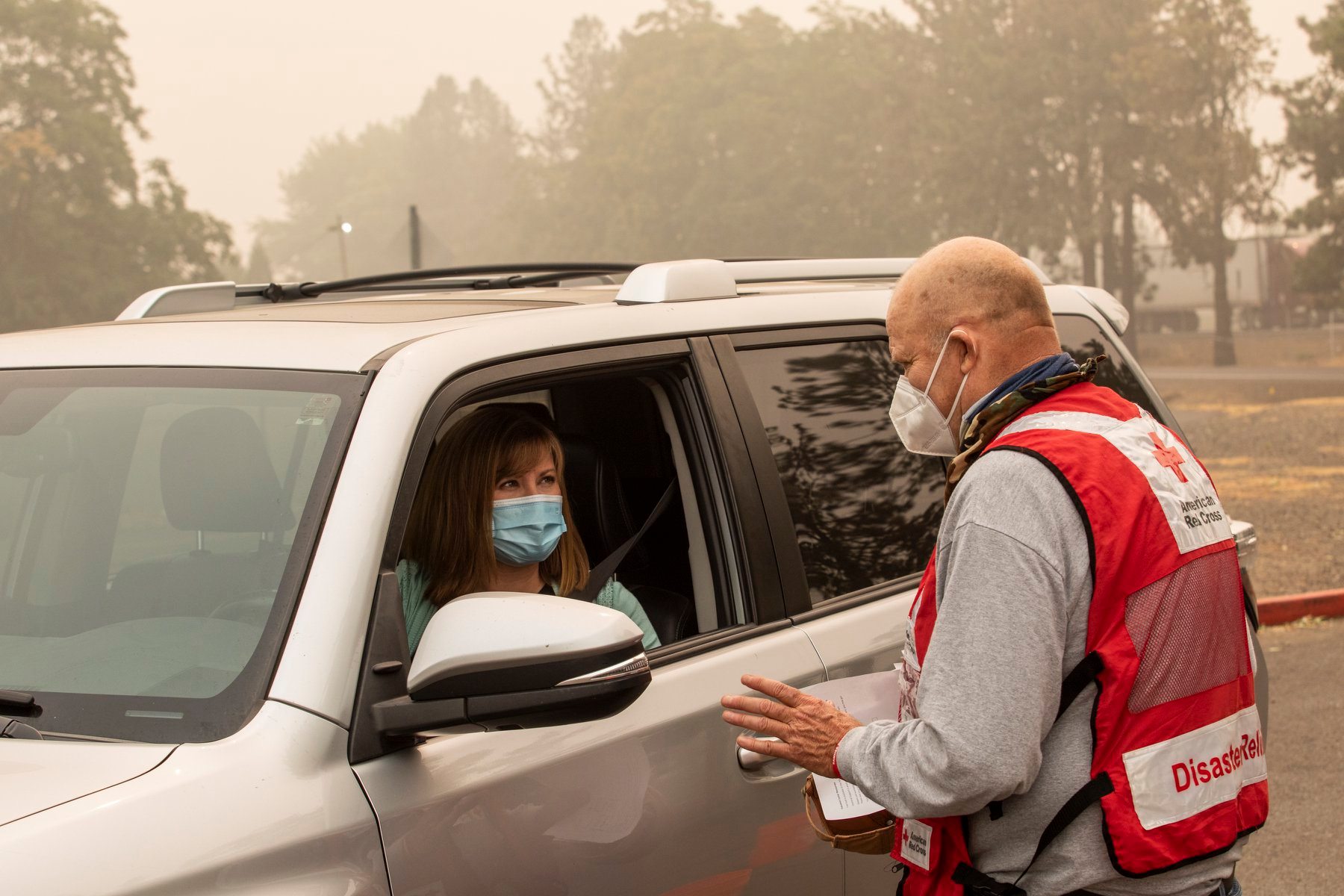
“The fires are still burning, although slowly being contained,” says Denise Everhart, the Division Disaster Executive for the Pacific Division of the Red Cross. “People have been in hotels or shelters for weeks. There are some that have been out of work for that long. They need food, prescription assistance, someone to listen and information about their evacuation. The Red Cross is there for them.”
While much of the media coverage might have faded, the Red Cross is still there, working closely with partners to provide emergency lodging, food, water, health services and relief supplies and other support for people whose lives have been turned upside down. In the weeks ahead, we will continue to work closely with community and government partners to make sure people get the help that they need to begin to recover.
“Recovery from hurricanes is measured in years, not days,” Brian McDaniel says. “The Red Cross will be here long after the news crews leave. The work is difficult to comprehend; but you do a little bit of work one day at a time. It’s like being an ant—you’re part of a huge operation. When you do your task well, everyone benefits.”
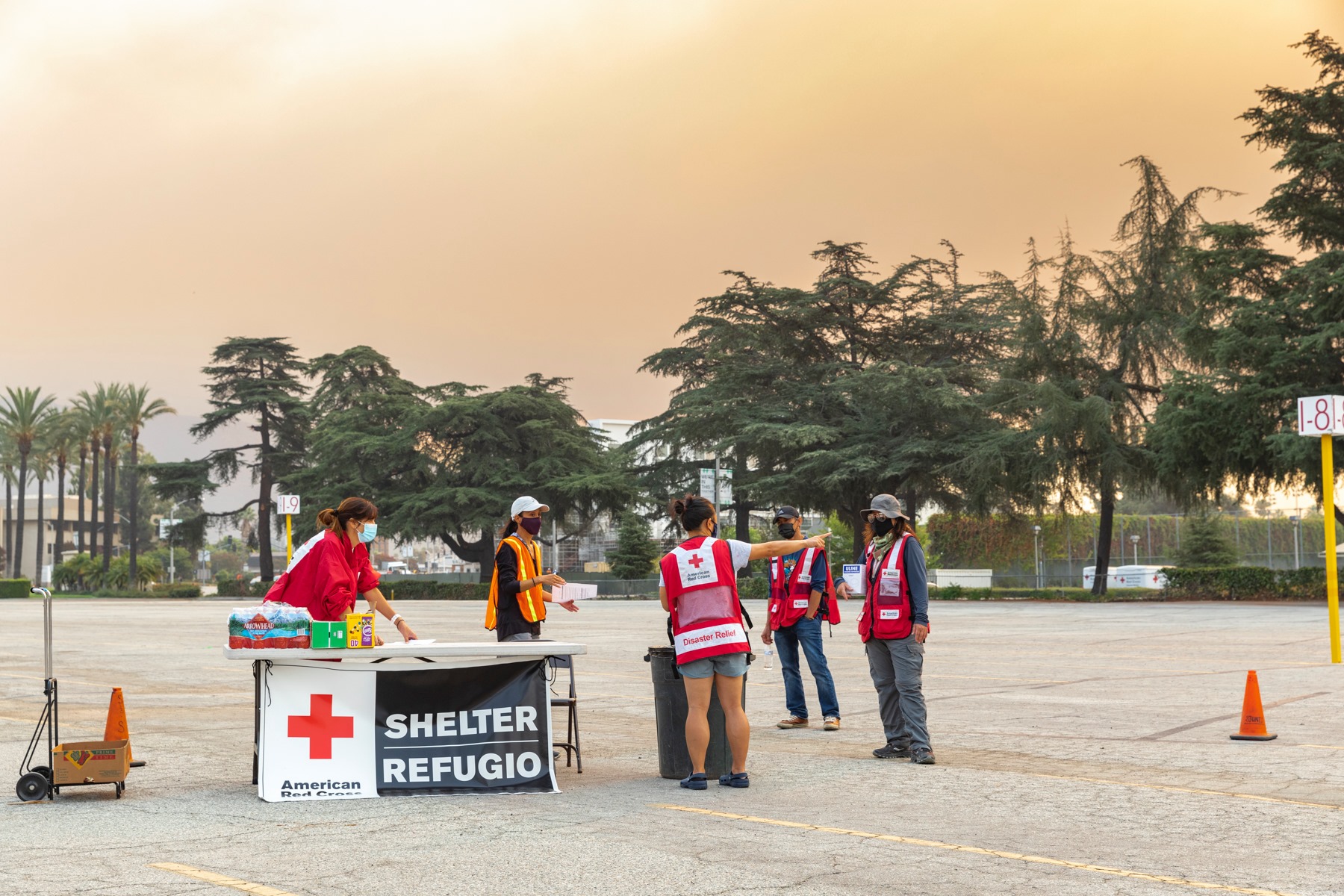
How to help:
Join us in supporting the American Red Cross.
Your Disaster Relief gift will help people whose lives have been upended by wildfires, storms, floods, and countless other crises. Your gift will not only help with immediate needs like food and shelter, it also will put people on the road to recovery and guide communities as they better prepare for disasters.
Your donation will be matched dollar for dollar up to a total of $100,000 thanks to a generous Matching Gift Challenge funded by:
- Virginia Blankenbaker
- Cynthia Helle
- Ray and Judy McCormack
- Susan and Nick Noyes
- Jenny B. Stoddard
- Jan Tratnik and Tim McPike
Please click here to donate:
